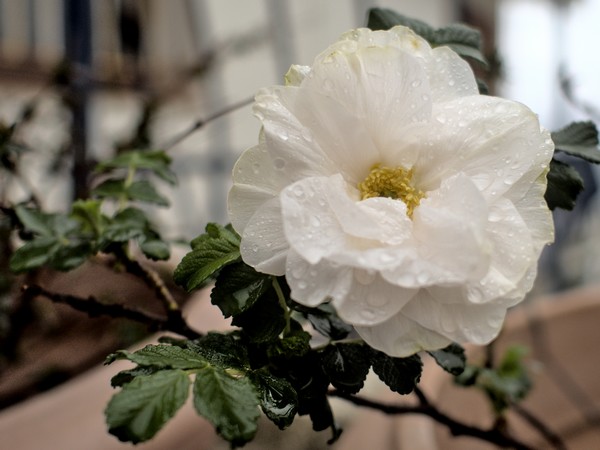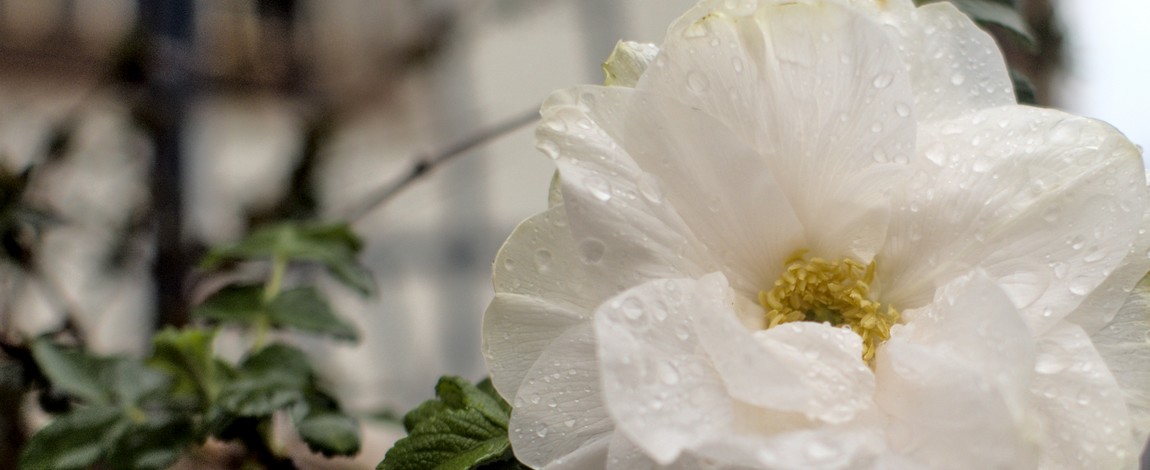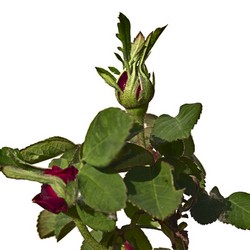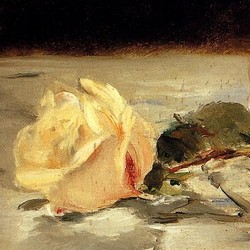
The long poem by the Belgian symbolist poet, published in 1904, comprises ninety-six poems in five parts. It draws inspiration from the creation of the world according to the Book of Genesis, but, as Lerberghe wrote to his friend, poet Albert Mockel, "My Chanson is after all no more than a completely subjective and lyrical poem, in which Eve and some beautiful motifs of his legend serve as themes and symbols". Thus, the first morning in the world is also Eva's first morning, but she's not created from one of Adam's rib (in fact, there is no Adam), but the poem says that she "has awoken out of God". A God who asks her to name the things he has created, and advises her to pick the flowers in their garden, but not the fruits because they are the source of knowledge and will bring her unhappiness: "All knowledge is vain, love only beauty. And may she be for you all truth." But Eva, who is usually complacent and tender, is also dreamy and curious, and one day, while the angels sleeping, she will taste a fruit. After all, as she only knows beatitude, she cannot understand the consequences of her act; she has not committed a sin and there will be no punishment. When she dies, the angels will go to find her to bring her to Paradise.
Fauré set into music between 1906 and 1910 in ten of the poems of La chanson d'Ève. During these years, he premiered some of the songs, always accompanying mezzo-soprano Jeanne Raunay, to whom he dedicated the work, and finally, the full cycle was first performed in April 1910, with the same artists. Seven of the ten musicalized poems belong to the second part of the collection, Premières paroles [First Words], so the cycle takes place mostly at the “blue garden” mentioned in the first song. That garden is full of roses, and that's what matters to us this week because next Saturday is Saint George's Day.
Among the different roses mentioned throughout La chanson d'Ève, I chose the perfumed white roses from the eighth song, Dans un parfum de roses blanches, which in Van Lerberghe's Chanson is the twenty-seventh and penultimate poem by Premières paroles; then La tentation will arrive. The poem has three strophes of three verses and one final verse, but for some reason Fauré suppressed the first verse of the third stanza, which refers to a wave that sounds far away. We could think that he needed the poem to have a more regular structure, all three stanzas with the same extension, but when we listen to the song we realize that the music respects this last solo verse. The scene described by the poetic voice, in the third person, invites contemplation, and Fauré reflects this in this song, composed in 1909; although the tempo is not particularly slow, it is an andantino, the dolce character indicated in the score and the slow variations of the vocal line make the piece quiet and reflective.
I leave you with Ève's perfumed white roses, and with Sarah Connolly and Malcolm Martineau. Have a nice Saint George's Day!
Dans un parfum de roses blanches
Elle est assise et songe ;
Et l’ombre est belle comme s’il s’y mirait un ange.
L'ombre descend, le bosquet dort ;
Entre ses feuilles et ses branches,
Sur le paradis bleu s’ouvre un paradis d’or.
Une voix qui chantait, tout à l’heure, murmure.
Un murmure s’exhale en haleine, et s’éteint.
Dans le silence il tombe des pétales…
In a perfume of white roses
Eve sits and dreams;
and the shade is as beautiful as if an angel were reflected in it.
The shadow falls, the thicket sleeps;
on the blue paradise, among the leaves and branches,
a golden paradise opens.
A voice murmurs which just now was singing...
A murmur breathes out and dies away.
In the silence petals fall...
(translation by Peter Low


















Comments powered by CComment